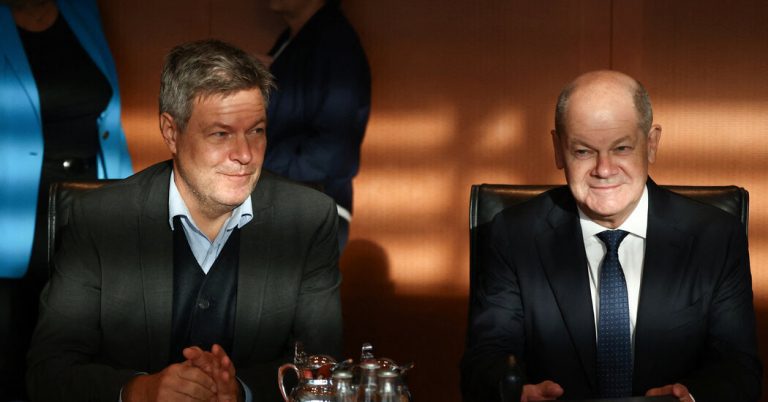Germany’s economic growth contracted for a second year in a row in 2024, according to data released on Wednesday. How it will be revived has become a central issue as voters prepare to go to the polls next month to elect a new government.
The economy shrank by 0.2% in 2024, after a similarly small contraction the previous year. Car and machinery manufacturing fell sharply as increased competition, especially from China, and flagging demand in Europe led to a 3% drop in output from a year earlier. Construction fared even worse, down 3.8% compared to 2023.
The German economy, Europe’s largest, has been weighed down by high interest rates and energy costs, along with persistent political uncertainty that culminated in the collapse of Chancellor Olaf Solz’s government in November.
The country is expected to see slow growth in 2025 and more than a third of voters named the economy as Germany’s most important problem, according to the latest poll.
“Even if the risk of complacency remains even after two years of stagnation, the hope is that any new German government will decide on a longer-term plan for economic reforms and investment,” wrote Carsten Brzeski, an economist at ING Bank. in a note.
Plans to return to growth dominate the agenda of every political party as the campaign for the February 23 election heats up.
Revival of industry
For years, Germany topped the United Nations ranking of the world’s top manufacturers. But competition from China has intensified, especially in industries such as cars and chemicals that have been the backbone of the German economy for decades.
Economists are increasingly warning of deindustrialization, and Germany’s leaders worry that the country could slip down the world rankings.
Alexander Krüger, chief economist at Hauck Aufhäuser Lampe, a private bank in Hamburg, warned that the “small growth” of less than a full percentage point forecast for next year equates to “barely enough to live on”.
“My concern is that there will be no change in the climate under the new government and that companies will continue to move away,” he said.
Friedrich Merz, chancellor candidate for the conservative Christian Democratic Union, has acknowledged the need for a “major effort” to revive the economy as his party pledges to return German growth to 2% over the next five years through changes to the welfare and tax systems .
The Christian Democrats, along with their sister party, the Christian Social Union, lead in opinion polls, especially among business leaders, who see the conservatives as offering the strongest ideas for stimulating the economy.
Investment in infrastructure
Germany’s public infrastructure has been neglected for decades, leading to collapsing bridges, an outdated electrical grid and significant delays to passenger trains. Without significant investment, economists warn that the country will lose its competitiveness.
Each of the parties has proposed solutions to improve public structures, facilities and networks. Two centre-left parties, the Social Democrats and the Greens, want to loosen the country’s law that limits annual borrowing to finance investment in infrastructure, services and education.
In addition, the Greens want to allocate money to create a separate fund that will pay for updating schools, expanding public transport networks and funding research into climate-friendly technologies.
Lower energy prices
The price of electricity in Germany is among the highest in Europe, leading many of the country’s energy-intensive industries, such as automobiles and chemicals, to move operations to China or the United States.
The Greens are focusing on more funding to expand renewable energy, but the Social Democrats are seeking to reduce grid charges, an idea also supported by the conservatives, who are reconsidering the decision to shut down Germany’s nuclear reactors.
The Alternative for Germany, a far-right party known as the AfD, is promising a return to Russian gas, which accounted for a third of all German energy until Russia invaded Ukraine in 2022.
The AfD also proposes to stop all funding for renewable energy projects. At a party conference on Saturday, chancellor candidate Alice Weidel said she would “destroy all the wind turbines” if elected, echoing President-elect Donald J. Trump, who promised last week that “no new windmills will be built.” . when he takes office.
Tax cut
Germans have some of the highest taxes in the industrialized world: Workers pay nearly 48 percent of their income, compared with an average of about 35 percent in other developed countries. Conservatives focus on reducing the tax burden on businesses and lower income earners.
But cutting taxes will be a challenge when the country faces a hole in its budget next year of about 15 billion euros, or $15.5 billion, and requires more money for the military and continued support for Ukraine.
Mr. Solz, who is running again for the chancellorship of the Social Democrats, proposes to raise taxes on the rich, with targeted cuts for companies in investment.
“This is calculated in such a way that it creates growth and remains affordable at the same time,” said Mr. Solz on German public television on Saturday.




